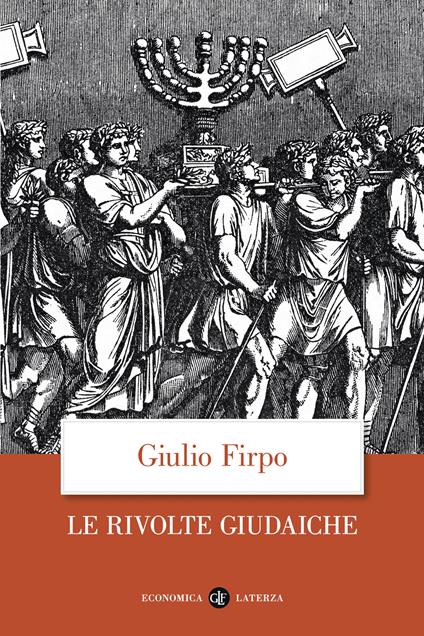The Jewish revolts

“The Jewish revolts” (Laterza) by Luigi Firpo read by Fullio Fazzolari
It may seem superfluous to underline that historians do their job with a scientific method and are not influenced by current events. However, it is equally true that tragic events such as the war in the Middle East rekindle interest in what happened in the past. It is no coincidence that in recent days some more attentive commentators have observed that the Hamas massacres and the Israeli bombings of Gaza are yet another act of a conflict that has continued on several occasions since 1948. But it could be added that peace in the Middle East does not it's never even been there before. And not even when the Roman Empire dominated the world.
“The Jewish revolts” by Luigi Firpo (Laterza, 136 pages, 11 euros) tells well without prejudice and with a precise reconstruction of the facts what happened in that period and helps to better understand what is happening today. Thanks to Firpo's work, we can learn about a rather ignored page of history. In some cases there has been talk of the destruction of Jerusalem by Titus. Or the siege of Masada. But, beyond the individual episodes, there has rarely been a clear and complete explanation of the events which instead "The Jewish Revolts" manages to give perfectly. The last independent kingdom of the Jewish people ceased to exist in 63 BC when it was militarily occupied by Pompey. Even Herod the Great, despite boasting the title of king, is in fact an ally and vassal of Rome. And apparently everything works as long as there are political or religious leaders in Jerusalem capable of managing the coexistence between a proud people and the Roman protectorate. But it doesn't last long and in less than a century, between 66 and 135 AD, three bloody revolts and equally ferocious repression devastated Judea causing tens of thousands of deaths not only among the fighters but above all among the civilian population.
The best-known rebellion is the great Jewish revolt of the year 66 which the emperor Vespasian had his son Titus repressed. Jerusalem and the temple were destroyed in 70 and Judea finally fell under Roman domination. It all seems over when, three years later, with the siege of Masada, even the last resistance is destroyed. But the riots resume. Even outside the borders of Judea, in Egypt and Cyrenaica, riots occurred among Jewish communities. And in 115, after about forty years of precarious balance in the relationship between Rome and the Jews, the second great revolt broke out, promptly repressed in blood by the emperor Trajan. Roman domination, however, only increased consensus towards the more extremist fringes. The most intransigent party is that of the zealots within which a sect of real terrorists is formed, defined as the sicarii from the name of the dagger they use to carry out political assassinations not only against the Roman occupiers but above all against more moderate Jews. The desire for independence is now combined with religious fanaticism. And in 132 the third great revolt exploded, also caused by the obtuse decision of the emperor Hadrian to prohibit circumcision. It will end three years later with yet another bloodbath and the name Judea will be canceled to be replaced with that of Syria Palestine.
This is a machine translation from Italian language of a post published on Start Magazine at the URL https://www.startmag.it/mondo/le-rivolte-giudaiche/ on Sun, 24 Dec 2023 08:18:02 +0000.
